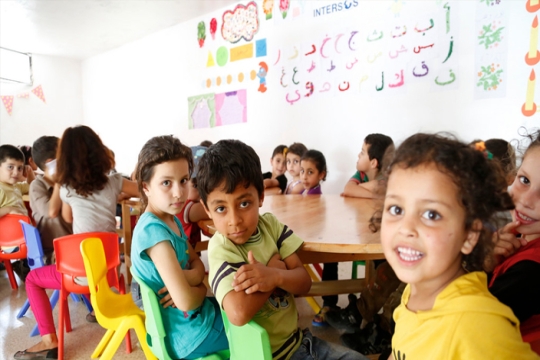
On Shavuot, as we celebrate receiving the Torah at Mt. Sinai, we also celebrate the beginning of the harvest and the connection between the earth, God and us. Receiving the Torah at Mount Sinai includes accepting the teachings and values of the Torah that guide our daily lives. The Torah teaches: “The choice first fruits of your soil you shall bring to the house of the Eternal your God” (Exodus 23:19). This request of the first fruits of the harvest highlights the value of our produce. Today, we are often so disconnected from where our food comes from that we can forget the value of what we are eating.
Many of our congregations and camps across the country are trying reforge those connections through community gardens. Last summer at URJ Crane Lake Camp, I was able to spend time in our continuously growing garden that was started just a few summers ago. One morning, we went down to the chicken coop and gathered eggs, up to the garden for some herbs and then out to the woods to cook our breakfast over the fire. Preparing an entire meal outside, without entering a grocery store or a kitchen was an special experience, and it helped make that breakfast most delicious batch of scrambled eggs I have ever tasted. I can assure you that not one bit of food in that meal was wasted.
But, that is not the case with most meals in the United States. There is an estimated 70 billion pounds of food wasted each year in America, up to 40% of food in the United States. In response to this crisis of food waste worldwide, the United Nations recently announced “The Food Loss and Waste Accounting and Reporting Standard,” a metric to record food loss and waste. This tool was established so that governments and businesses can create a baseline for food waste and then take action to reduce it in the future. With nearly one in nine people food insecure worldwide, we must take action to change our wasteful habits.
Factors such as climate change further exacerbate food insecurity. Therefore, in addition to reducing our waste as individuals and as a nation, we also must take steps to address the climate change. You can take action to support the Green Climate Fund, which was established to help vulnerable communities adapt to and mitigate the impacts of climate change.
As you celebrate Shavuot and the receiving of the Torah, remember our responsibly to be stewards of the environment and help those in need. Check out the RAC’s Shavuot Holiday Guide to find programs on food justice and the environment.
Related Posts

Native American Heritage Month: Continued Support for the Indigenous Population is a Necessity

Congress Must Expand the Child Tax Credit, a Powerful Tool Proven to Reduce Poverty


